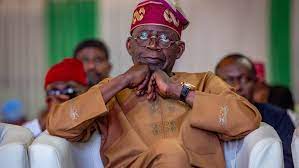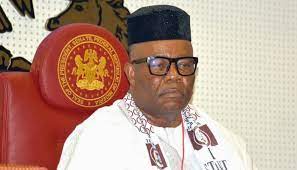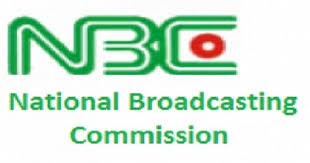Featured
SERAP berates Buhari, supports TI on corruption ranking
Published
8 years agoon
By
Olu EmmanuelSocio-Economic Rights and Accountability Project (SERAP) has berated President Muhammadu Buhari over his protest of the current corruption index from Transparency International in which Nigeria went down the ladder of the most corrupt countries in the world. President Buhari had dismissed the ranking as fiction and political.
The group rather admonished “… President Muhammadu Buhari to see the Transparency International’s Corruption Perception Index (CPI), published last week, as a wake-up call to renew its oft-expressed commitment and raise its game to fight both grand and petty corruption, as well as end the legacy of impunity rather than simply dismissing the survey as ‘fiction’.”
According to Transparency International’s report, the perception of corruption has worsened under President Muhammadu Buhari. The report showed that the perception of corruption in Nigeria worsened between 2016 and 2017. But the presidency has criticised the global watchdog, saying that TI was publishing fiction.
SERAP in a statement by its Deputy Director, Timothy Adewale, declared, “While TI’s index only measures perceptions of corruption, their findings correspond substantially with the reality of impunity of perpetrators, as demonstrated by the low conviction rate, the authorities’ slowness to adopt and implement critical reforms, appearance of selectivity in the anti-corruption fight, apparent complicity of key officials and cover-up, as well as unaddressed alleged corruption against several state governors. The authorities should take the report seriously and use it as an opportunity to raise their game in their efforts to rid our country of corruption and underdevelopment.”
The organization said that, “The government should make no mistake about this: Nigerians know corruption when they see it. Rather than simply criticising TI as publishing fiction or going after its board members, the government should accept the fact that its oft-expressed commitment to fight corruption has not gone to plan.”
The statement read in part: “The CPI may not be perfect, and in fact no index is. The CPI may not show actual evidence of corruption in the country, but perceptions are commonly a good indicator of the real level of corruption. In any case, the devastating effects of corruption in virtually all sectors providing essential public services are too glaring for Nigerians to ignore.
“While the government may have blocked some leakages in the systems and reduced the level of impunity witnessed under the previous administrations, it has not done enough to address longstanding cases of corruption, and the appearance of selectivity in the prosecution of corruption allegations especially when such cases involve those close to the seat of power. Today, corruption still constitutes one of the greatest threats to the country’s sustainable and equitable development.
“Almost 3 years after taking office, and promising to fight grand corruption, no ‘big fish’ suspected of corruption has yet been sent to jail. The situation has not significantly improved, and it seems unlikely that many of those facing grand corruption charges will be successfully prosecuted. Nigerians need to see real commitment and heavy investment in promoting a culture of clean government, and total obedience to the rule of law.
“Possessing the political will to fight corruption is not in itself enough if it’s not sufficiently demonstrated. Buhari should take the CPI to heart and initiate and actively facilitate the passing of tough anti-corruption laws, strengthening the capacity and independence of anti-corruption agencies, substantially improving the criminal justice system, obeying decisions and judgments of our courts, and ensuring the passing of the Whistle-blower Bill.
“Buhari can’t fight corruption successfully without significantly improving on the tools used by his predecessor former President Goodluck Jonathan. The government should as a matter of urgency implement governance reforms to advance effective functioning of government institutions, strengthen the quality of democratic institutions and rule of law, and reducing corruption, if Nigeria is ever going to improve on its global anti-corruption ranking.
“Public officials still use political power to enrich themselves without considering the public good. Selective application of the law is a sign that the law is not being followed strictly enough, and that the fight against corruption is not maximally prosecuted.
“In several states of the federation, and federal ministries, corruption is taking place every day and every hour, especially in the power sector, the education sector, the water sector, the health sector and other important public sectors. Corruption continues to directly affect the lives and well-being of millions of Nigerians across the country, and to erode public trust in public institutions and leaders, threatening the foundation of our democracy.
“There is uneven implementation of the rule of law and democratic processes, limited citizen participation in policy processes, and deliberate disobedience of court orders and judgments, such as the judgment of Justice Mohammed Idris of the Federal High Court obtained by SERAP, which ordered the government to publish widely how recovered stolen funds since the return of democracy in 1999 have been spent.
“The best measure of a country’s progress toward transparency and accountability is a total obedience to the rule of law. The law ought to command the highest levels of respect by for example, the government immediately obeying orders and judgments of competent courts. The fight against corruption won’t succeed if the government continues to selectively adhere to law or refuse to rectify any disobedience. No country in which official position and orders claim a place in people’s minds higher than the law can truly be said to fight corruption.
“Democracy works only if the people have faith in those who govern, and that faith is bound to be shattered when high officials and their appointees engage in activities which arouse suspicions of malfeasance and corruption.”
The Corruption Perceptions Index (CPI) is one of the most respected international measurement of corruption trends. It was established in 1995 as a composite indicator used to measure perceptions of corruption in the public sector in different countries around the world. The CPI draws upon many available sources which capture perceptions of corruption.
You may like


SERAP protests FG must drop cybercrimes charges against Chioma Okoli


SERAP develops 10-Point Action Plan on Promoting Transparency and Accountability in the Use of Public Funds in Nigeria with Focus on the Niger Delta


SERAP issues Tinubu 48 hours to reverse ban on media coverage of State House


SERAP threatens to sue Akpabio over ‘holiday allowances’ to Senators


SERAP, others drag NBC to court over fines on AIT, 2 others


CAMA: Remove repressive provisions or face legal action, SERAP tells Buhari
Trending

 Entertainment6 days ago
Entertainment6 days agoSimi addresses resurfaced 2012 tweets amid online backlash

 Health1 week ago
Health1 week agoSCFN, LUTH introduce bone marrow transplants as curative treatment for sickle cell

 Health4 days ago
Health4 days agoDeclassified CIA memo explored concealing mind-control drugs in vaccines

 Football1 week ago
Football1 week agoHarry Kane nets brace as Bayern edge Frankfurt 3–2 to go nine points clear

 Football1 week ago
Football1 week agoLate Flemming header stuns Chelsea as Burnley snatch 1–1 draw at Stamford Bridge

 Crime4 days ago
Crime4 days agoSenior police officers faces retirement after Disu’s appointment as acting IGP

 Education6 days ago
Education6 days agoPeter Obi urges JAMB to address registration challenges ahead of exams

 Crime1 week ago
Crime1 week agoTwo killed, seven injured in early-morning shooting in Richmond’s Shockoe Bottom

